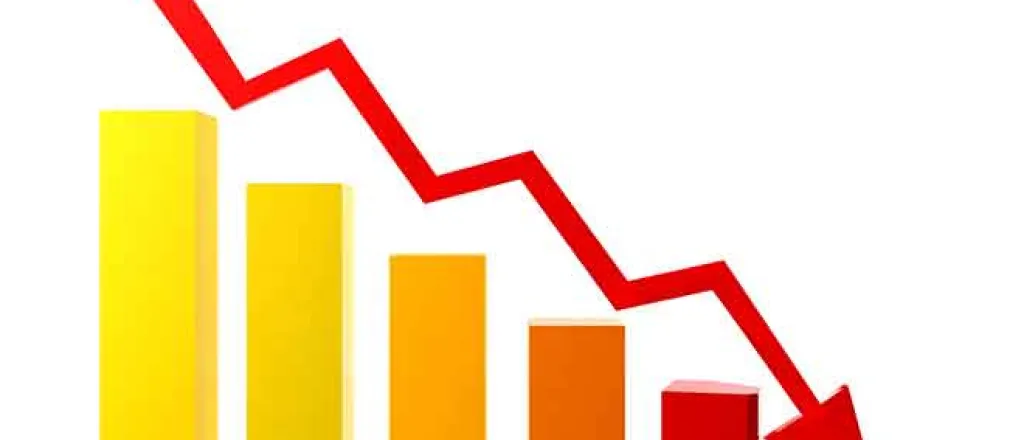
Federal budget deficit in June was larger than the entire deficit in 2018
Bethany Blankley | The Center Square
(The Center Square) – June's federal budget deficit was $864 billion, an amount greater than the entire federal budget deficit for the year of 2018, according to Congressional Budget Office (CBO) data.
“That's more than the entire annual budget deficits of 2017 ($665 billion) or 2018 ($779 billion), more than any year during the George W. Bush administration or Barack Obama's second term,” Peter Suderman, features editor at Reason, wrote. “In June of 2019, the federal budget deficit was $8 billion, which almost seems like a typo now.”
In light of the unprecedented deficit, Marc Goldwein, head of policy at the Committee for a Responsible Federal Budget, tweeted, “To reduce our debt burden at the pace we did after World War II, we'd either need $20 trillion of 10-year deficit reduction, 6 percent sustained real growth, or 12 percent annual inflation.”
Federal debt is expected to grow by about $4 trillion this year and will exceed the size of the economy by year’s end, Goldwein said in a paper about the state of the economy.
“Much of this borrowing is inevitable and desirable – though not costless – in light of the current pandemic and economic crisis," he wrote. "However, the need for the federal government to borrow today does not mean borrowing can continue indefinitely without consequences.”
In January 2019, the CBO published a report in which it projected that the annual budget deficit – the shortfall between government spending and tax revenues– would be roughly $900 billion in 2019. It would add another $1 trillion every year beginning in 2022.
Debt as a percentage of the U.S.’s total economy would also increase, reaching 93 percent of GDP by 2029, the CBO projected, due to entitlement and interest payments on U.S. debt. Both debt and deficits would drag the economy down, even at a time when unemployment was below 5 percent. These projections excluded any foreseeable impact by the coronavirus, which hit two months later.
As a result of the CARES Act and subsequent bills, the CBO projects the economy won’t recover for more than a decade, Suderman notes.
According to the most recent 10-year outlook, the CBO projects that unemployment will remain above 10 percent for the rest of 2020 and will remain high beyond 2030.
“Economic growth is expected to be sluggish – probably $17 trillion less than the pre-COVID track we were on,” Suderman said.
In February, Romina Boccia, former Director of the Grover M. Hermann Center at the Heritage Foundation, wrote that the U.S. entered 2020 with a trillion-dollar annual deficit for which there was “no excuse.”
In 2012, Speaker of the Republican House John Boehner had adopted a 10-year target to reach a balanced budget proposal, which never came to fruition. And President Donald Trump’s budget proposal for fiscal year 2021 also promised to balance the budget in 15 years.
The spending and tax cuts allocated by the CARES Act, and the Families First relief bill, will increase debt by $1.76 trillion, and $192 billion, respectively, according to CBO projections. The small business relief act added $480 billion to the total.
Spending increases and tax cuts in coronavirus legislation may increase debt initially to roughly $2.4 trillion in total.
Chris Edwards, an economist at the Cato Institute, estimates that the effect of the recession will reduce federal revenues a further $2.2 trillion over the next few years. With higher spending and lower revenues, federal borrowing costs are expected to be approximately $1.2 trillion higher over the next decade.
The basic CBO estimates exclude these costs, Edwards notes. All told, these decisions will add an estimated $5.8 trillion to the national debt.
The deficit will soar to nearly $4 trillion in 2020, then narrow to roughly $1.5 trillion for the next few years, before it is expected to widen again, Edwards says.
“Without spending restraint, low taxes are in immediate danger of being reversed,” Boccia warned. “High deficits and debt also threaten economic progress, dragging down growth and putting the country at risk of a future fiscal crisis during which interest rates would rise.”
Returning to the goal of balancing the budget in 10 years or less should be a priority, she said.
















